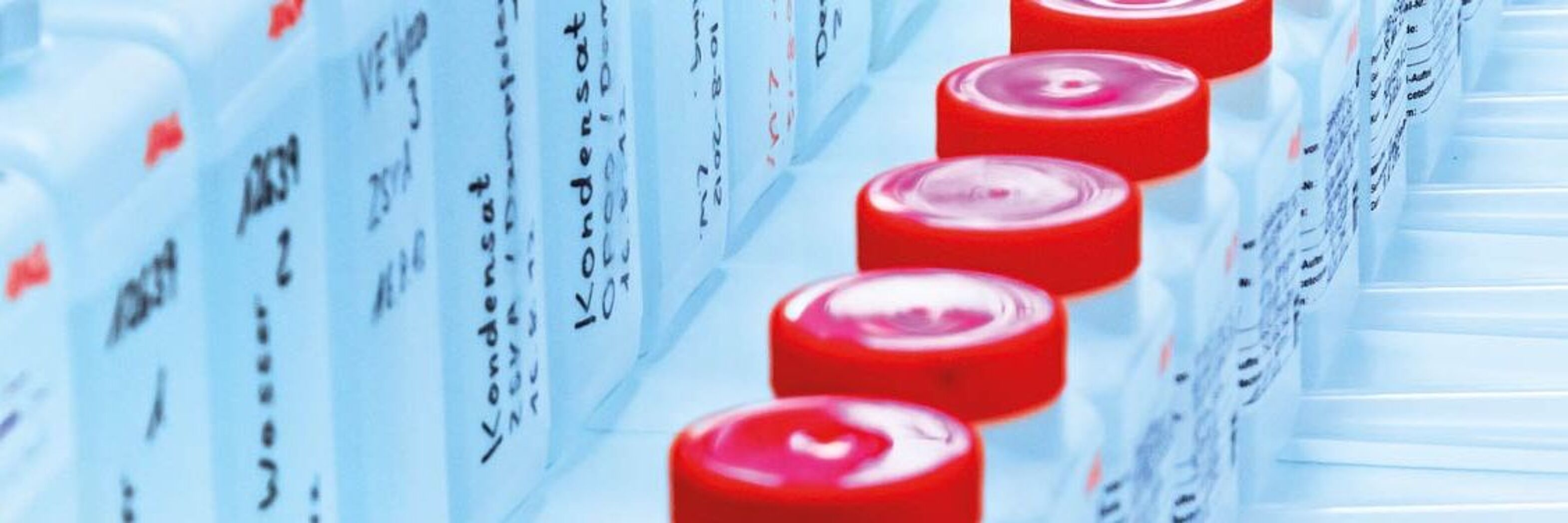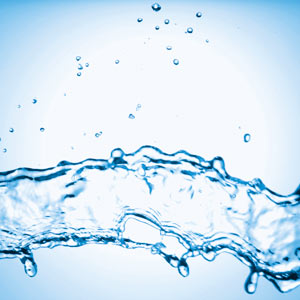
Water analysis – expertise – services
Water analysis
In the field of water analysis, we have been a trusted partner for hospitals, medical practices, care institutions and machine manufacturers with regard to cleaning, disinfection and sterilisation processes in the reprocessing of surgical instruments and minimally invasive instruments such as endoscopes for many years.
The quality of the water used in these areas is a key factor in terms of medical health protection and hygiene. Water constituents cause discolorations on washware and corrosion on surgical instruments and machines. Therefore, application-related recommendations on water treatment in the industrial process itself and regarding program sequences in cleaning and disinfection processes always take into account the available water quality and the water quality stipulated in relevant guidelines or standards.
In the field of medical technology, monitoring water quality in the reprocessing of surgical instruments is a key factor in the effectiveness and reliability of the reprocessing process.
For instance, Annex 3 of the recommendation by the Commission for Hospital Hygiene and Infection Prevention (KRINKO) at the Robert Koch Institute (RKI) and the German Federal Institute for Drugs and Medical Devices (BfArM) on hygiene requirements for the reprocessing of medical devices states that the suitability of the setup location and the equipment at the operator’s premises should be documented.
The requirements for feed water and condensate are set out in Annex B of EN 285 “Sterilization – Steam sterilizers – Large sterilizers”.
The provision of valid and reliable results in line with the state of the art in these areas that require special supervision for the benefit of our customers is part of our system expertise at Dr. Weigert.
Our water laboratory is accredited under DIN EN ISO/IEC 17025.
In line with our corporate philosophy, customer benefit is the top priority. The reliability of examination results therefore plays an important role here. At Dr. Weigert, the quality of results is ensured by a professional, committed, highly experienced laboratory team in a modern chemical laboratory with state-of-the-art equipment.
For quality monitoring, quality-assurance measures are performed both inside and outside the laboratory. These include adherence to standard-compliant quality criteria of analytical methods as well as regular participation in Germany-wide ring trials and direct comparative studies with other laboratories.
- Including examinations of feed water and steam condensate
in the context of EN 285
Analytical methods in our laboratory (extract)
| Standard | Parameter | Accredited |
| DIN 38404 part 4: 1976 | Determination of temperature | Water/temperature matrix |
| DIN EN ISO 10523:2012-04 | Water quality – Determination of pH value | Water/pH matrix |
| EN 27888:1993 | Determination of electrical conductivity | Water/conductivity matrix |
| DIN 38409 part 1: 1987 | Determination of total dry residue/ (Deviations: Evaporation of the entire quantity of water in the steaming cabinet, quantity of water used 100 ml, constant) | Water/total dry residue matrix |
| DIN EN ISO 10304-1:2009 | Determination of dissolved anions by liquid chromatography of ions: fluoride, chloride, nitrite, orthophosphate, bromide, nitrate and sulphate | Water/chloride, orthophosphate, nitrate, sulphate matrix |
| DIN EN ISO 14911:1999 | Determination of dissolved cations Li+, Na+, NH4+, K+, Mn2+, Ca2+, Mg2+, Sr2+ and Ba2+ using ion chromatography | Water/Na+, K+, Ca2+ and Mg2+ matrix |
| DIN 38406-16:1990 | Determination of seven metals (zinc, cadmium, lead, copper, nickel, cobalt, thallium) by voltammetry | Water/zinc, cadmium, lead, copper matrix |
| In-house method / 001 | Determination of iron in ultrapure water by voltammetry | Water/iron matrix |
| DIN 38405 part 21:1990 | Determination of dissolved silica by photometry (Deviation: spectroquant silica test) | Water/SiO2 matrix |
Important tips for users
If you need to monitor and document water quality when reprocessing medical devices or during process validation, e.g. in the context of EN 285 or DIN EN ISO 15883 (validation of sterilisation or cleaning processes) or in kitchens and need a water analysis, you are welcome to get in touch with us.
Please note the following:
Analysis results are only as good as the underlying sample.
- Use new and unused containers made of PE or PP for sampling
(water samples in food containers etc. are unsuitable, and we cannot process them in the laboratory for safety reasons) - For a full water analysis, we need a water quantity of at least 300 ml
- Adhere to any instructions on sampling set out in the respective standards as well as parameter-relevant preservation measures
- Label the sample container:
- Sample designation (e.g. feed water or condensate)
- Sampling date
- Origin/sampling point/sampler
- Please also enclose this information with the samples in a letter
If you need any additional information, e.g. on the process, processing duration and prices, please use our contact form.

